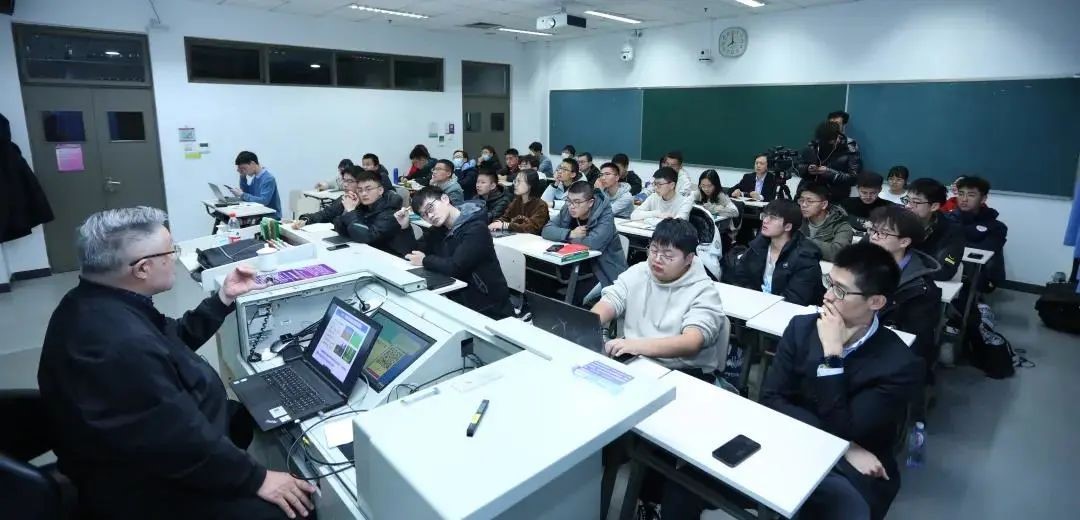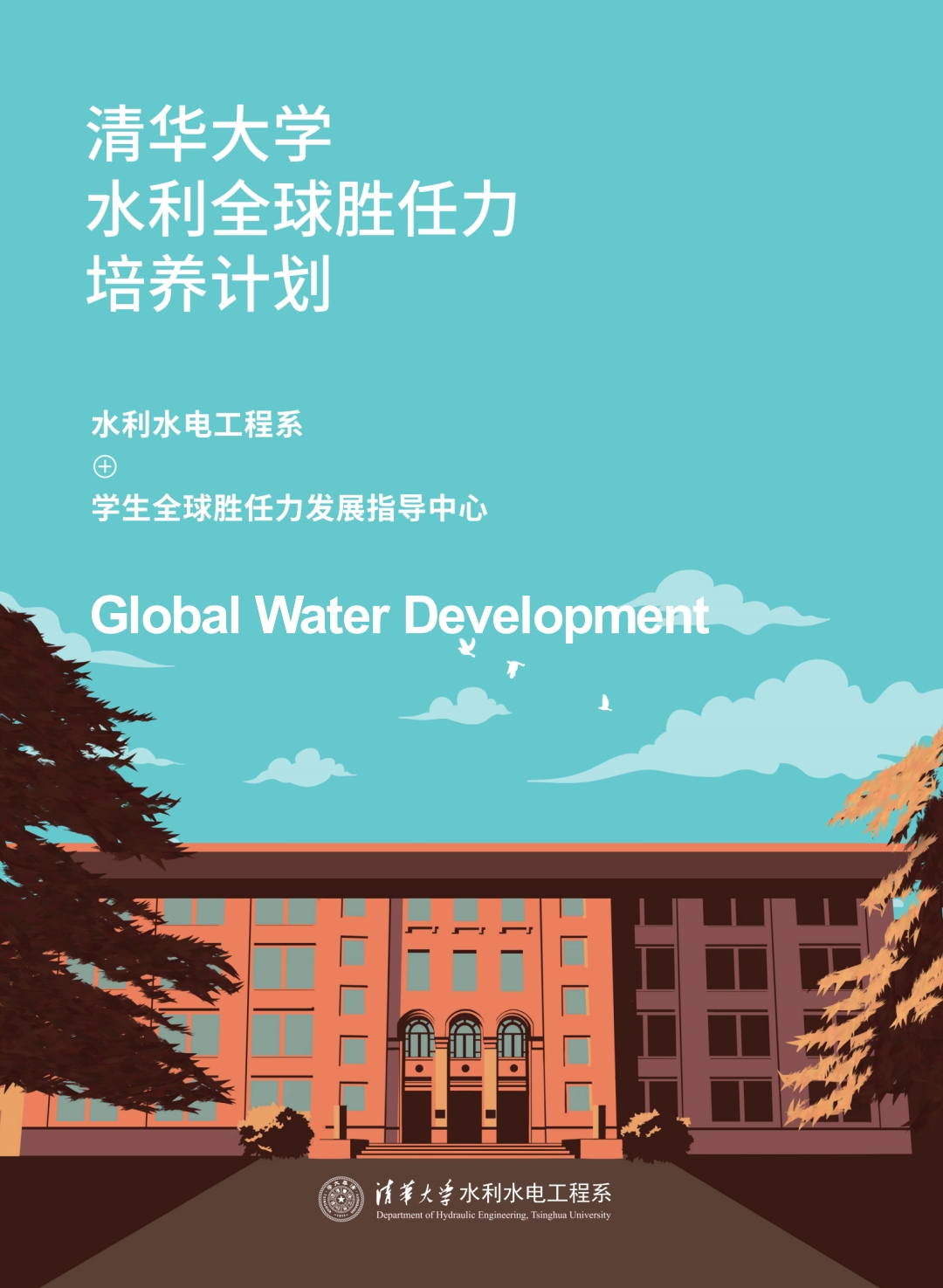
GWP China Vice Chair, Hao WANG, delivered 50+ potential water professionals offline and 80+ online a lecture of ‘modern water resources’ on Monday evening. For a better understanding of the newcomers in water sector, Prof. WANG illustrated the youngsters physical and chemical characteristics of water.
Regarding the value of water resources, he said, “Water is the basic composition of organisms. All animals and plants are inseparable from water. It is also a core in ecosystem. Along with temperature and light, they are the three abiotic environmental control factors of the earth. We can observe how water and people have interacted from water development in China.” Dual Water Cycle Theory was invented by Hao WANG that reflects what water affects human society and how human actions transform nature and landscape. His theory exposes double insights in water development from natural and social aspects. “Modern water system is relevant to multiple disciplines. From a scientist standpoint, research on water sources involves mathematics, chemistry, materials science, mechanics, biology, informatics, landscape science and others. It refers an interdisciplinary nature, containing generalist education and technical knowledge.” Prof. WANG, in his 2-hour course, revealed students an integrated knowledge of water resources and an expert’s view on water science.
He made an analysis on water resources including opportunities and challenges in China. Four parts in his presentation:
- “The Source of All Things: The Mystery of Water”
- “Water in China: Current Situation of Water”
- “Scientific Water: Water Management”
- “Water in the Future: Imagination of Water”
“Even rich in total water resources,” he said, “China’s per capita is less than 1 / 3 of the world average level. Moreover, it is with the most frequent flood disasters in the world. The statistics reveal China has the most occurrences of flood disasters with the largest economic losses. Last year, 398 people were killed and missing due to the "720"(July 20) rainstorm in Zhengzhou (Henan Province) with a direct economic loss of 120 billion yuan (EURO 17.5 billion).” He added, “we have to tackle with disasters, water shortage, pollution, eco-degradation and human actions. It expects integrated and scientific management of water resources.”
Concerning the water risk in cities, Jie ZHEN, with College of Water Engineering, Tsinghua, raised questions about "keys in emergency management, e.g., control over unexpected rainstorm and flood" and "lessons and learned from ‘the 720-rainstorm event in Zhengzhou’". Prof. WANG gave further information on disaster control solutions at home and abroad. Forecasting water-related disaster, particularly extreme catastrophes, relies on collaboration of multiple models and decision-making of powers. He helped participants identify the 720-rainstorm incident from natural and social standpoints
